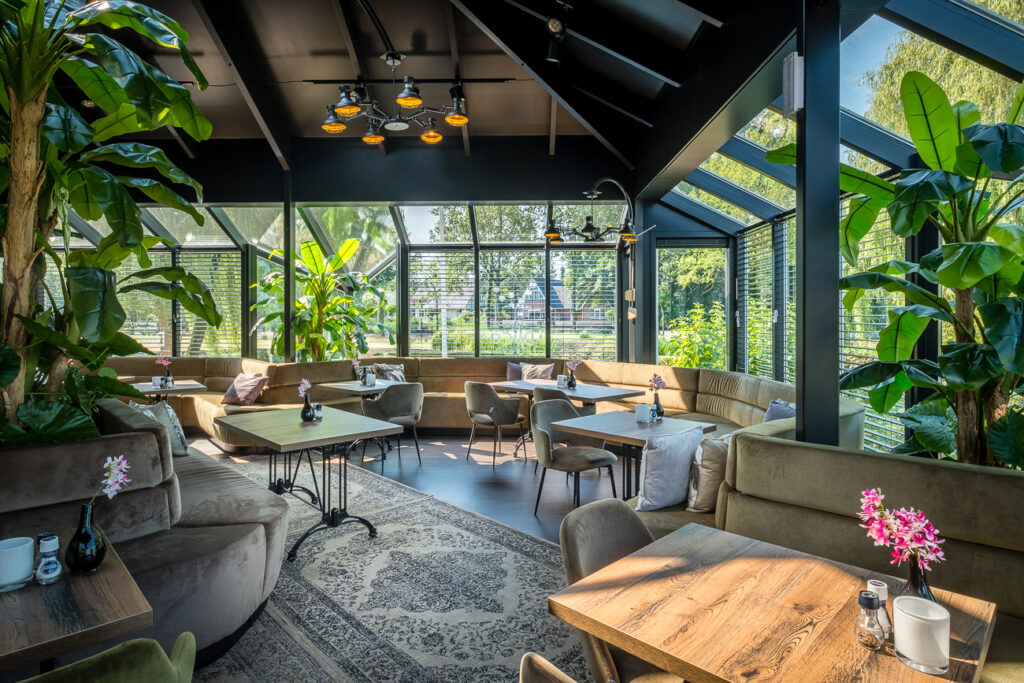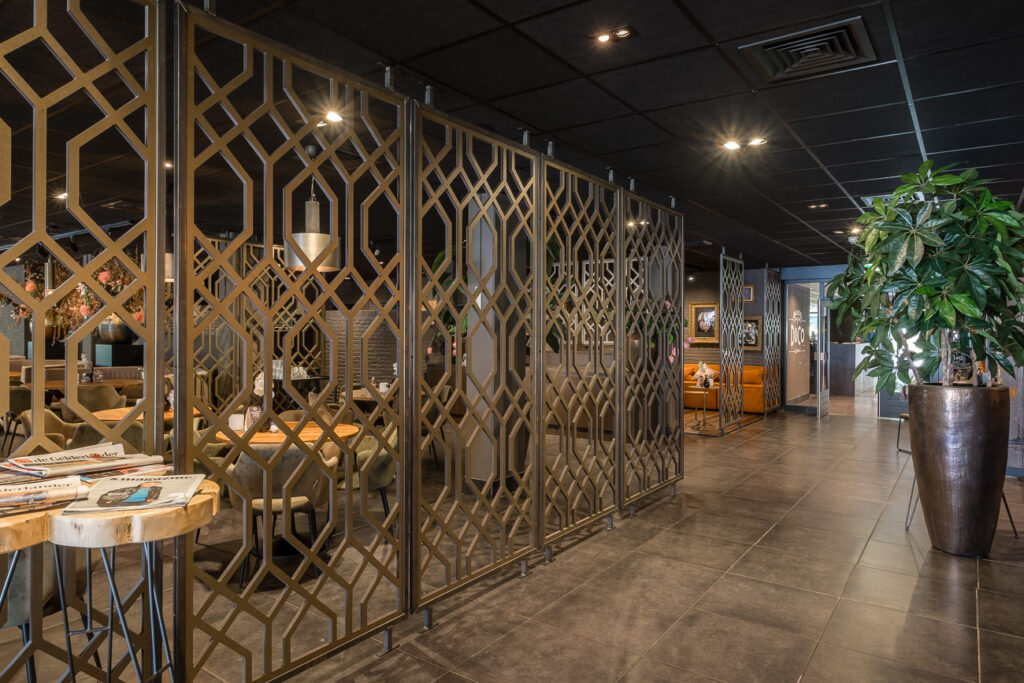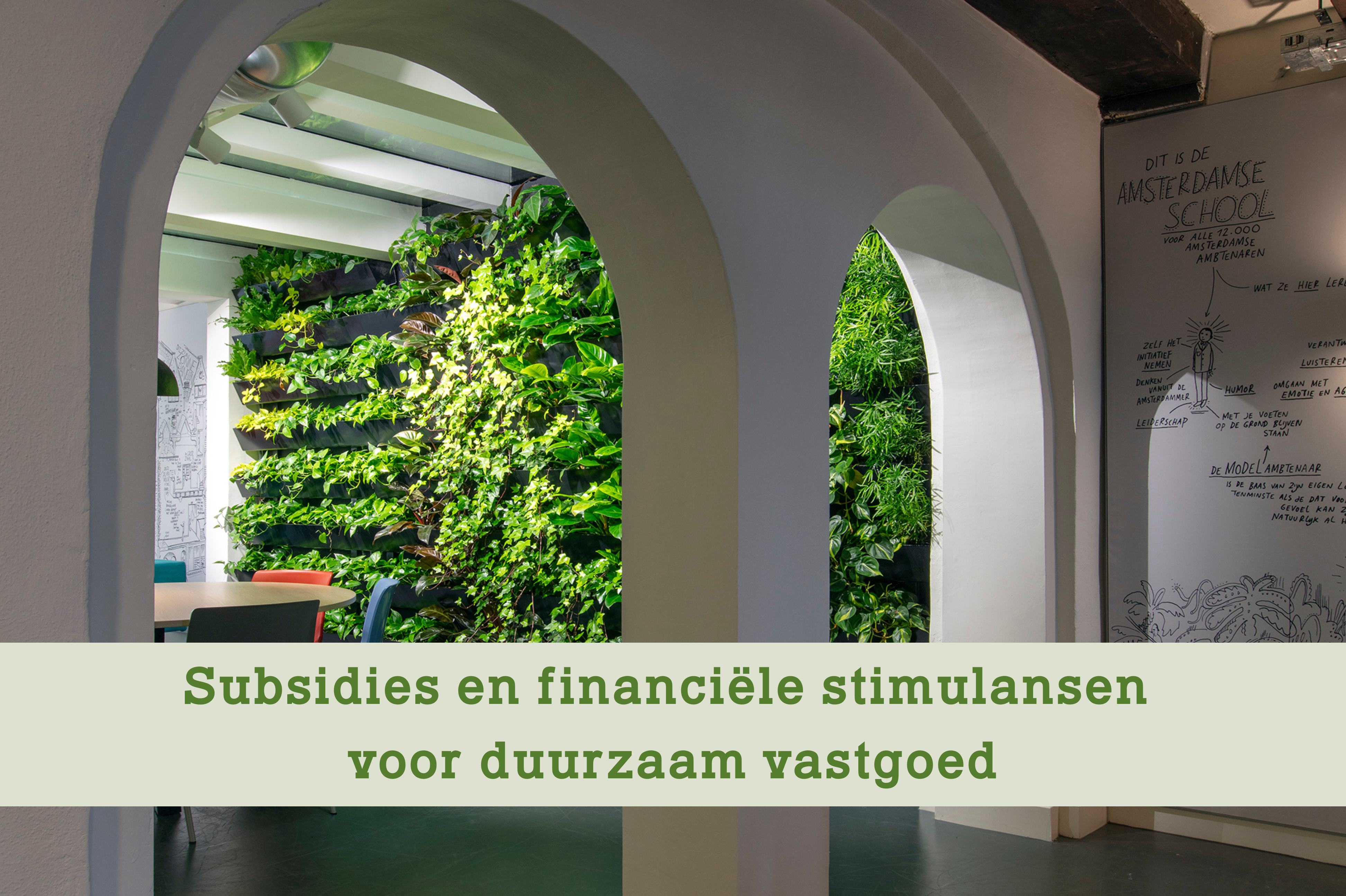Subsidies and financial benefits for real estate sustainability
Sustainable real estate is an important part of a green future. It makes for a healthier living environment, contributes to a stronger natural environment and has economic benefits. At the same time, it can also be a costly investment. Fortunately, there are several subsidies and financial benefits for property owners and developers that make it more attractive to invest in sustainable, future-proof buildings. In this article, we will discuss the main subsidies and benefits and give tips on how to make the best use of financial resources.

Overview of available subsidies and financial benefits
1. Sustainable Energy Investment Subsidy (ISDE)
The ISDE offers financial support for the purchase of renewable energy solutions such as a heat pump, solar boiler or small-scale wind turbine. You can use this as a business, (housing) association, HOA, government and private landlord. No subsidy is available for solar panels.
2. Energy Investment Allowance (EIA)
The EIA is a tax scheme that offers entrepreneurs a tax break on investments in energy-saving business equipment and renewable energy. You can deduct up to 40% of investment costs from taxable profit, starting from an investment of €2,500.
3. Environmental Investment Allowance (MIA) and the Arbitrary Depreciation of Environmental Investments (VAMIL)
The MIA offers an investment deduction of up to 45% for environmentally friendly business assets, while the Vamil allows entrepreneurs to write off 75% of investment costs at any time. These schemes make it financially attractive to invest in environmentally friendly technologies that are on the environmental list.
4. Subsidy scheme for sustainability for homeowners’ associations (SVVE)
As a housing cooperative, housing association or Homeowners’ Association (HOA), you can also apply for subsidies to make your building more sustainable. Such as for energy-saving measures or a heat pump, or for electric car charging points.
5. Subsidy Scheme for Sustainability and Maintenance of Rental Housing (SVOH)
As a landlord of existing rental properties, you can also apply for subsidies to make your rental properties more sustainable with energy-saving measures. But you can also subsidise maintenance measures and energy advice if you also implement a measure.
6. Local subsidies and incentive schemes
Many municipalities and provinces offer additional subsidies and loans for sustainability projects. These local schemes can vary, but attractive options are often available for building insulation and other energy-saving measures, installing solar panels, or greening the surroundings[1].
Tips on applying for financial aid
1. Do thorough research
Do thorough research in advance on available subsidies and schemes. You can do so on the websites of government bodies such as the RVO (the Netherlands Enterprise Agency) and local municipal websites. The conditions, deadlines and amounts available can vary from scheme to scheme, so it is important to be well informed.
2. Engage an adviser
You may also consider engaging a subsidy adviser. These experts can help you identify the most appropriate subsidies for your project and submit the applications. Their expertise can make the difference between an application being approved or rejected.
3. Bundle investments
Try to bundle together investments in sustainability. By implementing several energy-saving measures at once, you can qualify for higher subsidies and tax breaks. Moreover, an integrated approach is often more efficient and effective.
4. Timely and strategic planning
Make sure you plan and submit subsidy applications well in advance. Some schemes have limited budgets and operate on a first-come, first-served basis. There are also subsidies that need to be applied for before implementation starts. By planning well, you increase your chances of approval.
5. Document everything accurately
Keep detailed records of all expenses and investments. This is essential for the successful submission of subsidy applications and can help make any later checks or audits run smoothly.
6. Be aware of changes
Subsidy programmes and tax schemes can change regularly. So try to stay up to date on the latest developments and adjust your planning or strategy accordingly if necessary. This may provide new opportunities for additional financial support.
Financing advice for real estate sustainability
Above we gave an overview of the main funding opportunities, but we recommend always checking the website of the RVO, municipality or province, as subsidies can change. Proper research, strategic planning and engaging experts are important steps in this regard.
Do you need help with that? We will be happy to advise you on the options for the sustainable renovation of your premises. We also provide an overview of expected investments and savings, possible subsidies and payback time. This way, you have a clear overview of what the sustainability opportunities are for your property. So please feel free to contact us.


